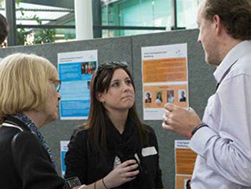Search

Every parent knows that physical activity and playtime are important elements of healthy growth and development. They're also a lot of fun.

For Perth researcher Ami Bebbington, mathematics is a vital tool in her personal and professional quest to improve the lives of children everywhere.

You are invited to come and hear about our research, meet our researchers and express your interest in working together on current and future projects.

A new study looking at the receptive language development of young children has highlighted the need to monitor kids over time to ensure they don't fall behind.

Research from The Kids Research Institute Australia shows that a short time interval between pregnancies may be less of a risk factor for preterm birth and low birth weight

A new study has found that having a friend with good social skills and a supportive family may make a critical difference to the resilience of Aboriginal youth

Pregnancy brings with it some level of risk. There is no getting around that. Of course, women want to do the best for their baby, but there is a risk.

Free public seminar - we will be discussing how neighbourhoods provide opportunities (or barriers) for kids' play, physical activity, health and development.

New research from The Kids Research Institute Australia has revealed that children and youth treated for Attention Deficit Hyperactive Disorder (ADHD) are more likely

The results from two new The Kids Research Institute Australia studies on Attention Deficit Hyperactivity Disorder (ADHD) show an association between the condition
